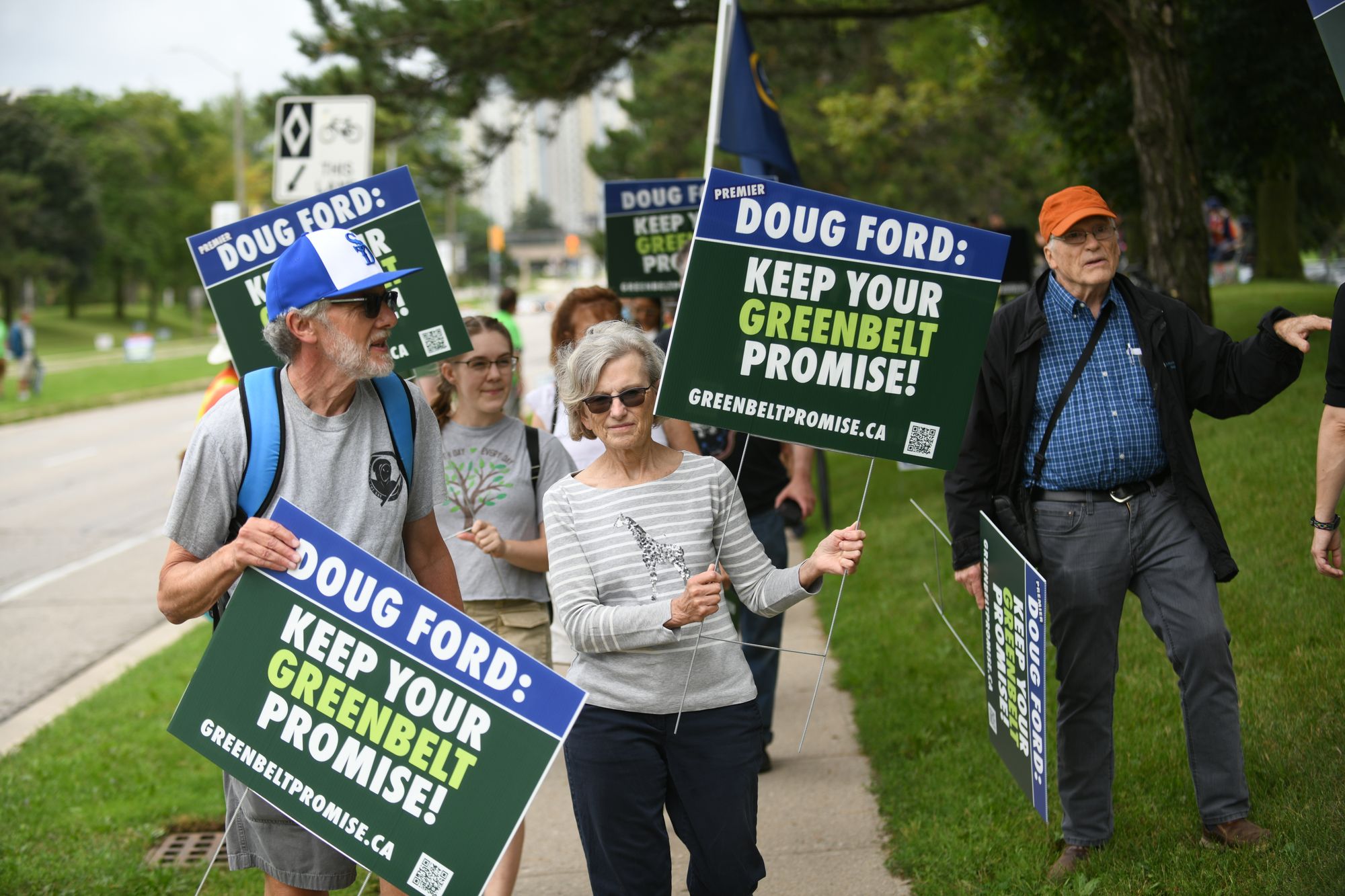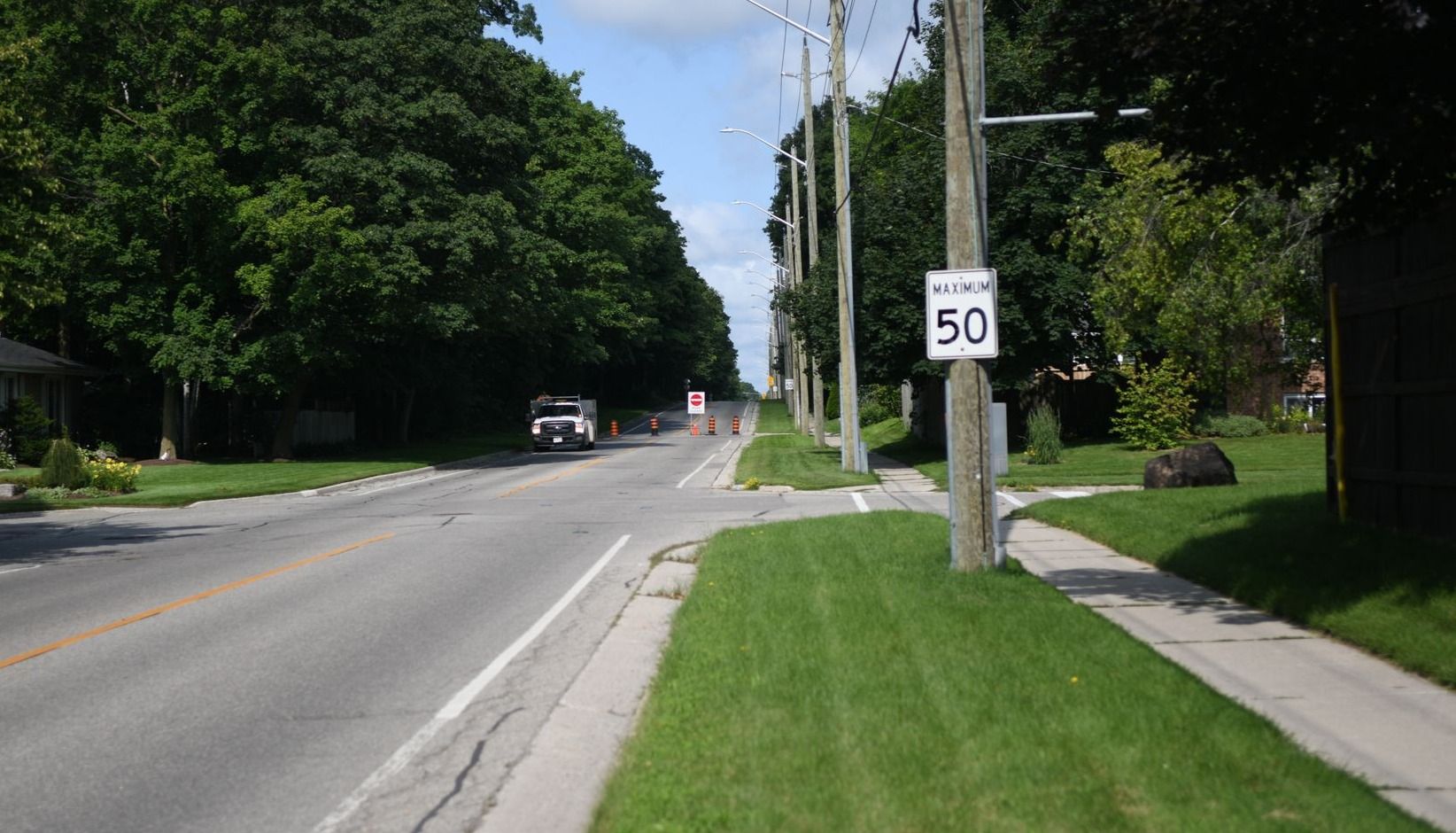The rain cleared up in time for a rally against urban sprawl held in Waterloo last weekend.
About 100 people gathered on either side of University Avenue near Waterloo Park for the protest, with multiple motorists honking their horns in support as they drove by.
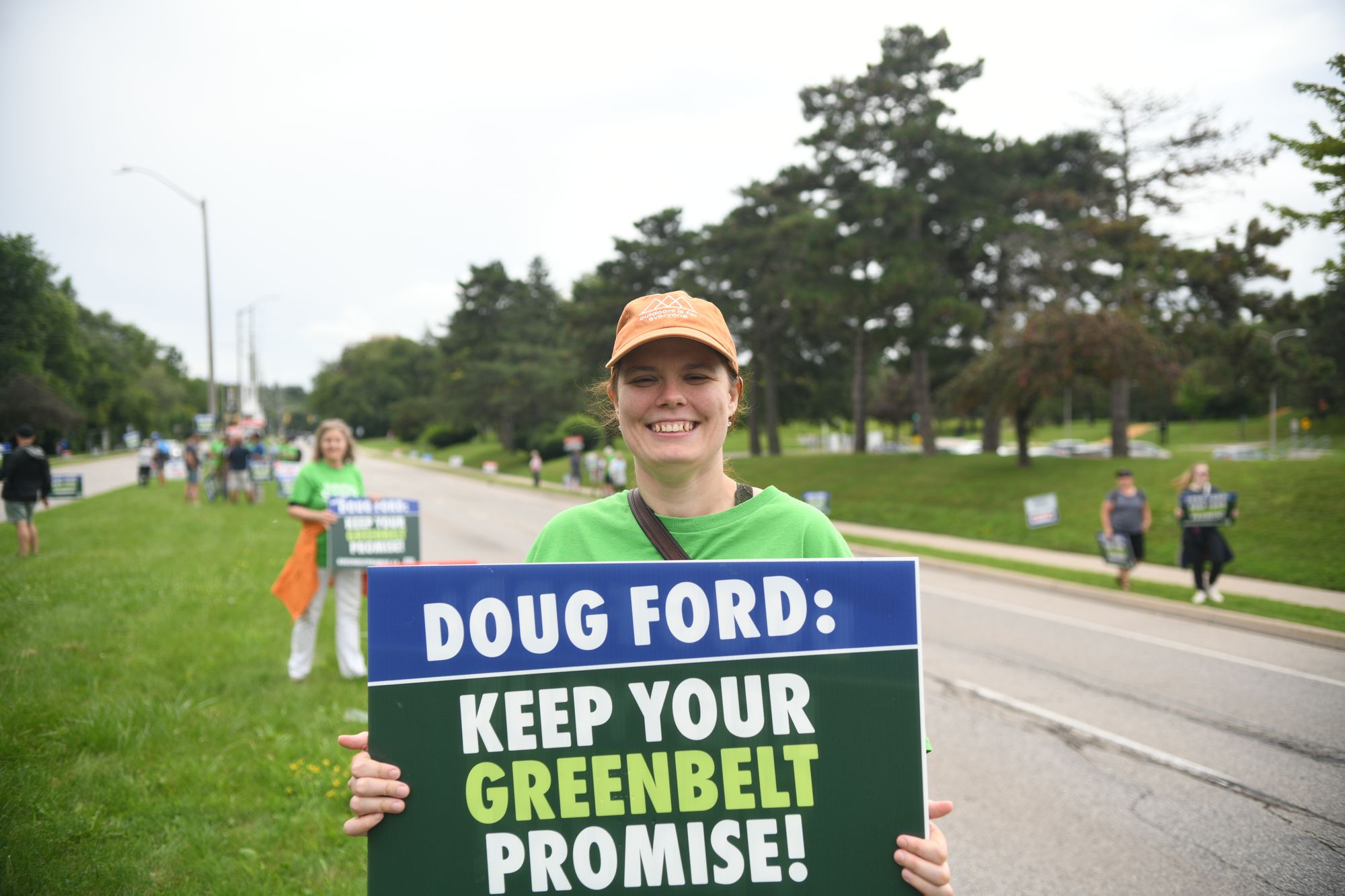
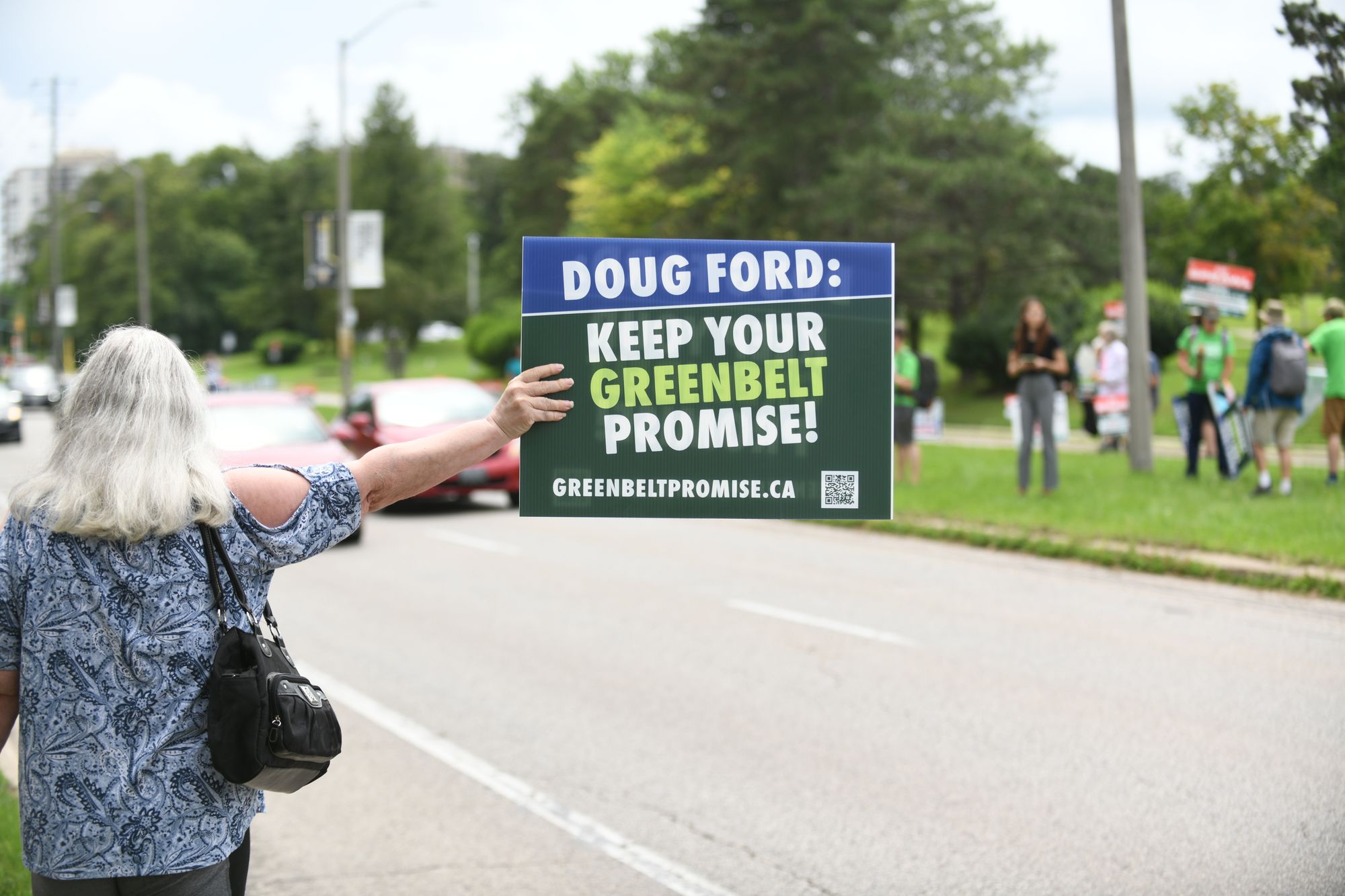
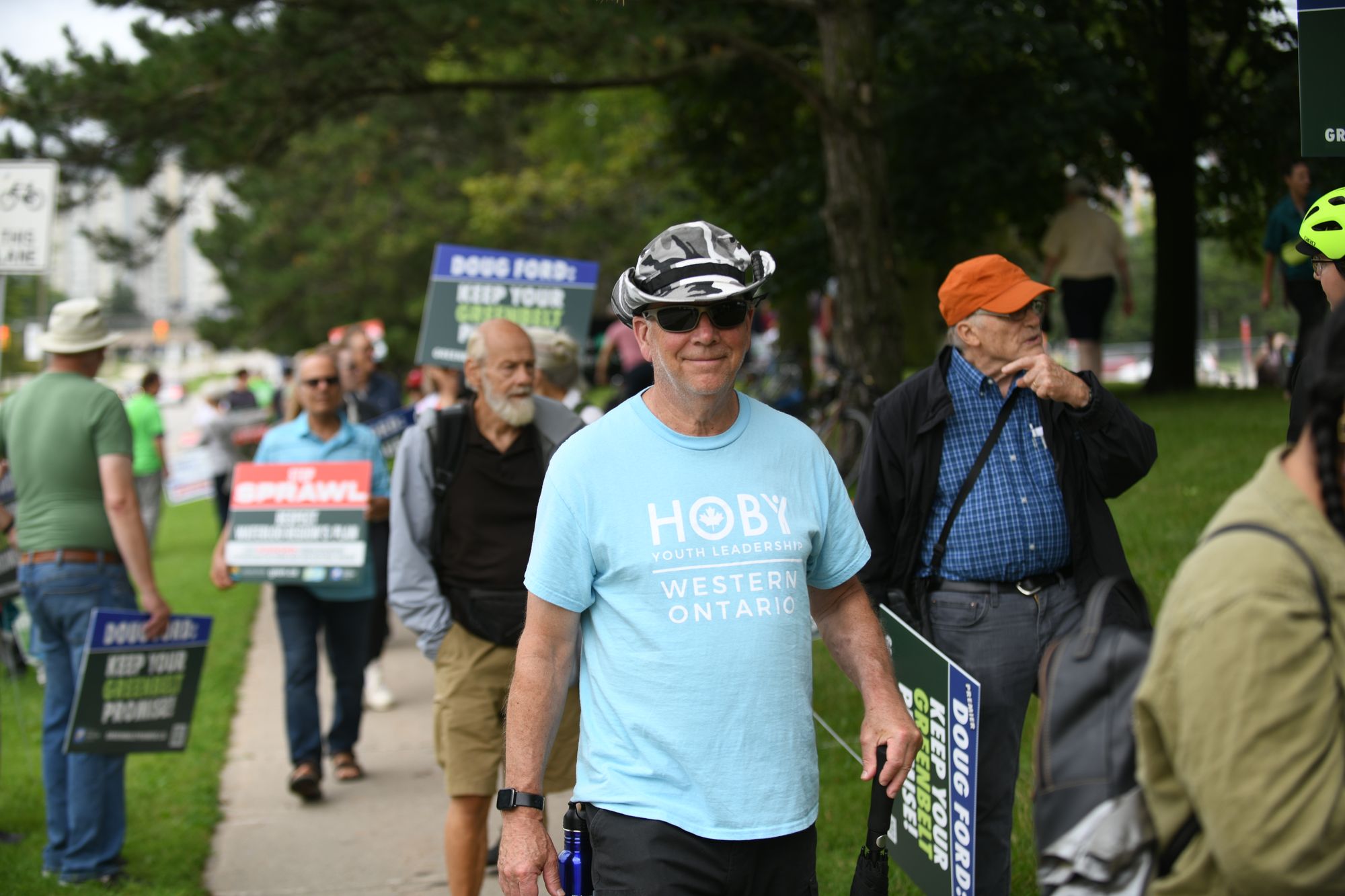
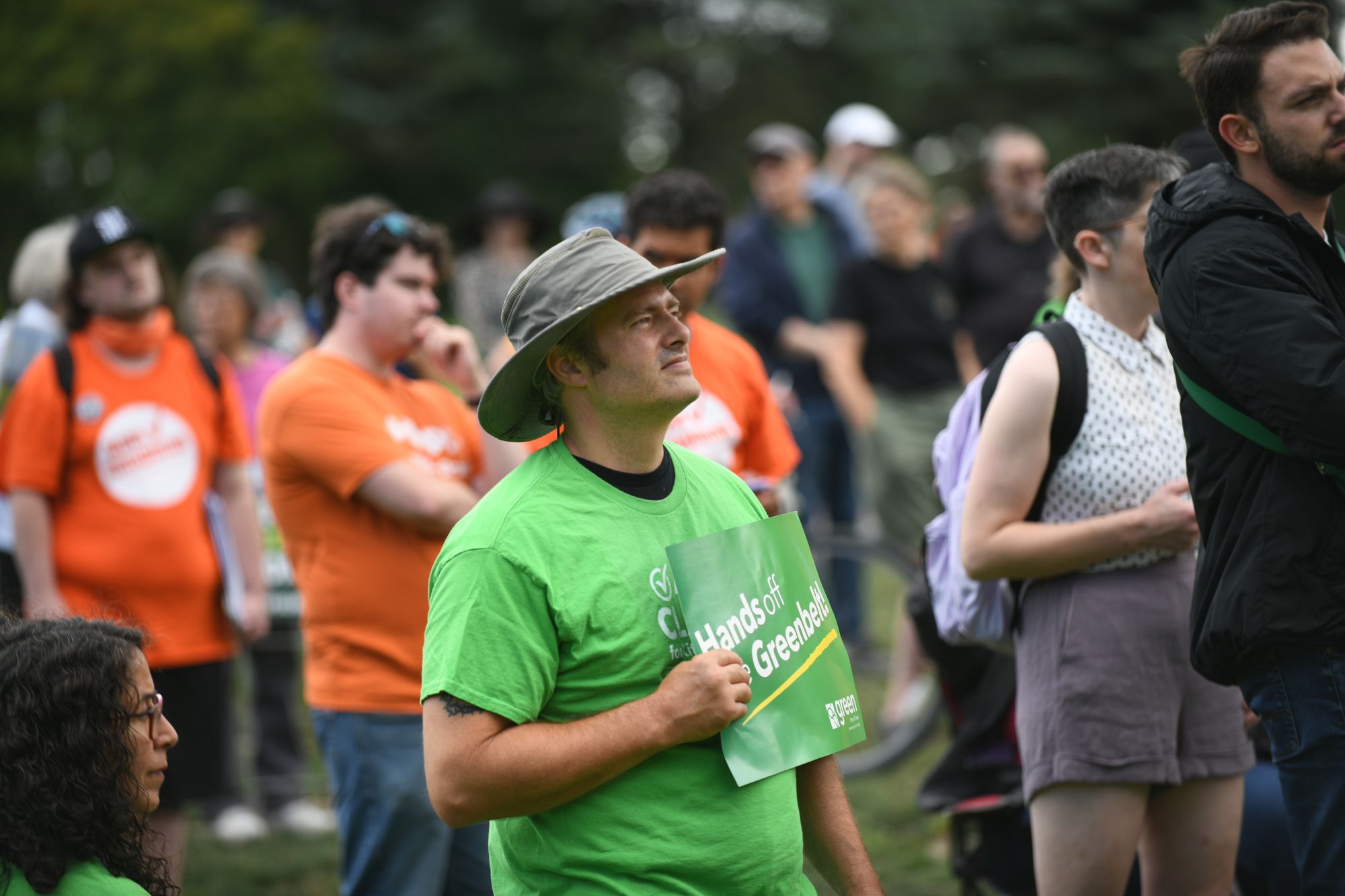

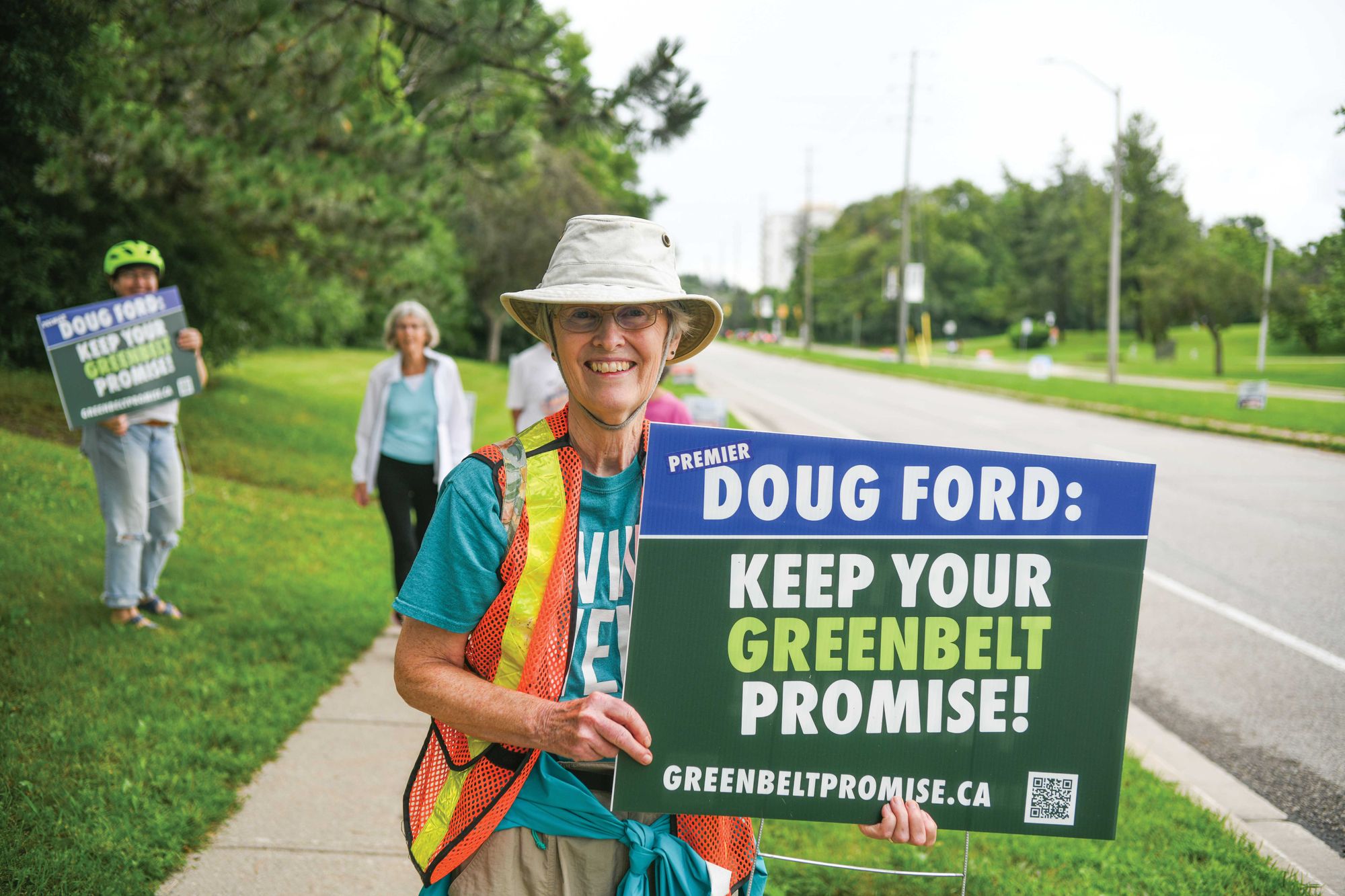
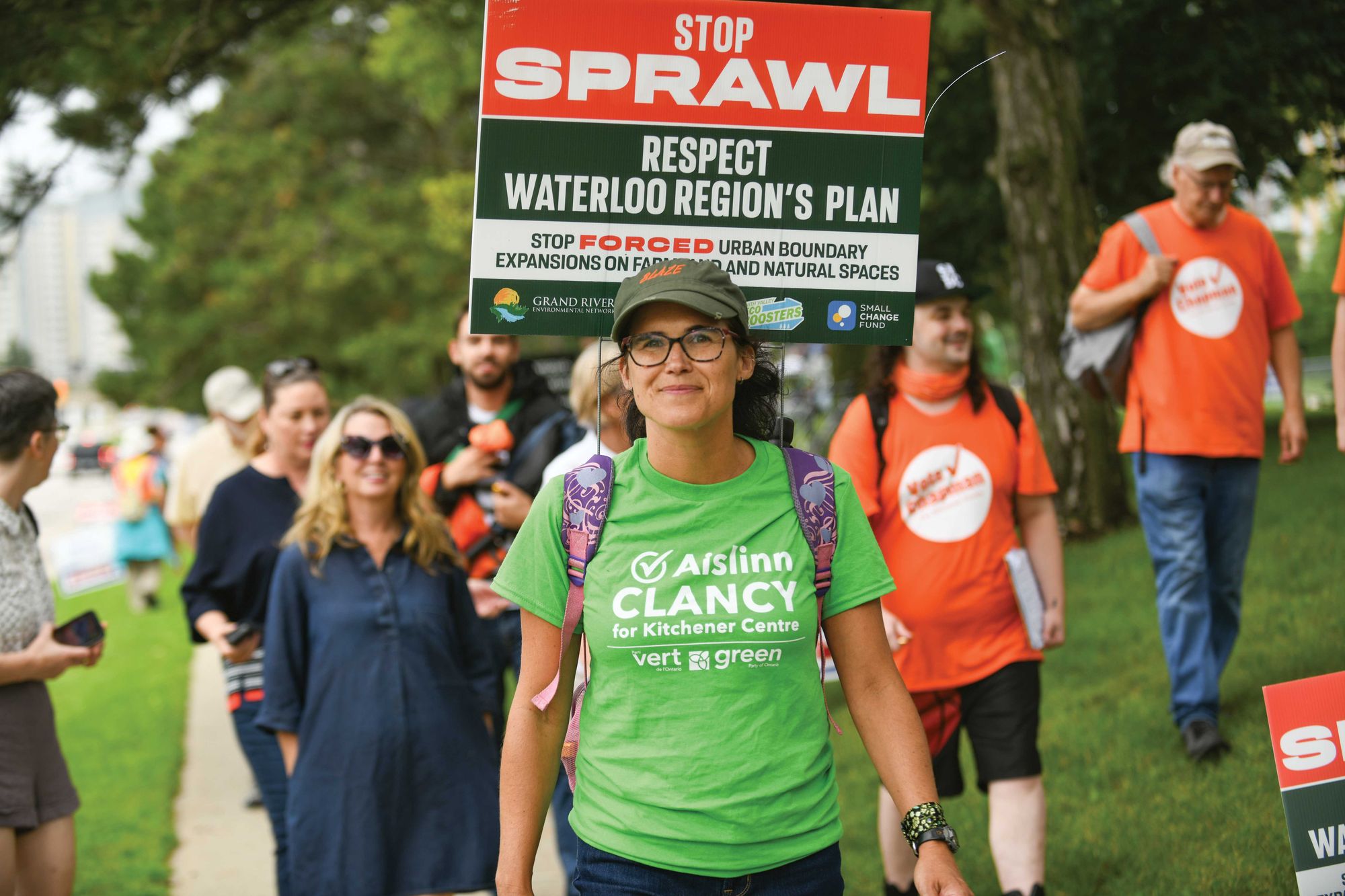
The Ford government’s plan to allow development on parts of the Greenbelt came under fire again at the rally. [Leah Gerber]
They were protesting the provincial government’s proposed changes to the Provincial Policy Statement, a key piece of legislation which guides how and where land is developed in the province.
The group then moved to the band shell in Waterloo Park to listen to a variety of speeches from community organizers, politicians and others.
Proposed changes to the PPS that the groups disagree with include dropping the definition of ‘housing affordability,’ and changes that eliminate policies protecting environmentally sensitive areas and wetlands.
“[The PPS] is the foundational planning document that is in place for decades in which every law and every plan has to conform to. It sets the tone for everything. And to see the premier come in and rewrite the Provincial Planning Statement with no public consultation, with none of the information sessions, open houses, all those sorts of things we’ve seen in the past to see the only opportunity for the public have to comment on this is to submit a submission into the ERO is absolutely astounding,” said Kevin Thomason, a volunteer with Grand River Environmental Network and lead organizer of the protest.
The proposed change the groups take the most issue with is the government’s proposal to allow up to three severances and 12 building lots per farm.
Farming groups came together denouncing this proposal this past summer, and provincial staff said the proposal would be dropped.
“They’ve said they’re going to drop it, but twice now they’ve issued revisions and updates of the PPS in which it’s still in there. So very concerning to see them continually rewriting it, and still leaving it in place,” said Thomason.
Asked about the severances, Victoria Podbielski, a spokesman for Municipal Affairs Minister Steve Clark, said that in response to feedback from the agricultural sector, “We will not be moving forward with a proposal to allow up to three lot severances on a farm, but will instead look at other ways to increase rural housing supply and support farm families while preserving farmland.”
Michel Labonte, who attended the rally, is originally from Quebec. “I’m really concerned about what’s happened in Ontario since I’m here. I’m here for 10 years, and everything I see is developers, developers, developers everywhere. I can’t believe what’s happening to the land, the farmland. It’s going everywhere from the east of Toronto up to south of London. It’s not just the GTA. It’s beyond that. It’s so amazing to see the destruction of the nature around us. We need to do something right now.”
In response to being asked how the housing crisis should be addressed, Labonte responded, “I think there’s many ways to build houses responsibly. And I think instead of urban sprawl, we need to build more in the existing area.”
Antonio Rodriguez also attended the rally. “I’m big on environmentalism. I want to have kids one day, and I want to enjoy the environment, and these really aren’t things you can do if we just keep on mindlessly and endlessly expanding.”
Podbielski says that the changes to the PPS are necessary to build housing to accommodate the massive increase in population the province is experiencing.
“With more than 500,000 people arriving in the province over the past 12 months, Ontario is growing at an historic rate, yet in recent decades, Ontario’s housing supply has fallen far short of existing demand. Almost every corner of our province is or will be experiencing massive levels of growth,” she said. “We want to make the policies for land use planning in Ontario clearer and simpler to follow, while at the same time aligning with our objective of building 1.5 million homes by 2031. That’s why, we are consulting on the proposed Provincial Planning Statement that reflect the reality of growth, which is taking place across Ontario, and not just in the Greater Golden Horseshoe.”
Speaking at the event, Catherine Fife, the NDP MPP for Waterloo, said that the government’s approach to solving the housing crisis is not going to fix the problem, which is not just about the number of houses available, but also their affordability.
“We know there is a housing crisis and building unaffordable housing on the Greenbelt does not solve that. Everybody sees right through that,” she said.
She spoke about how the countryside line, which delineates the region’s self-defined limit on growth, and up to which the province ordered opened for development this year, was created, among other reasons, to protect the region’s underground water sources.
“You should never gamble with our source water protection. You should never gamble with our aquifer,” she said.
Podbielski said the government is encouraging the public to provide feedback to the policy on the Environmental Registry (ERO#019-6813). The proposal is open to public feedback until August 4.


